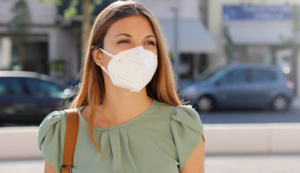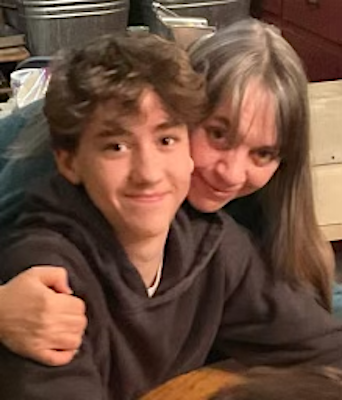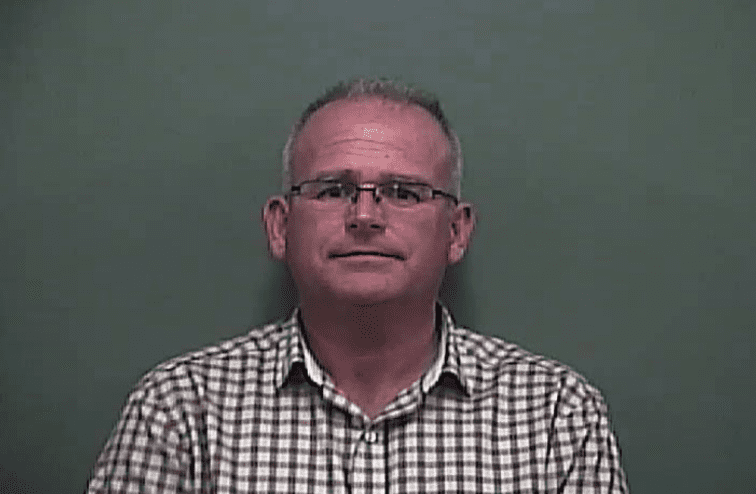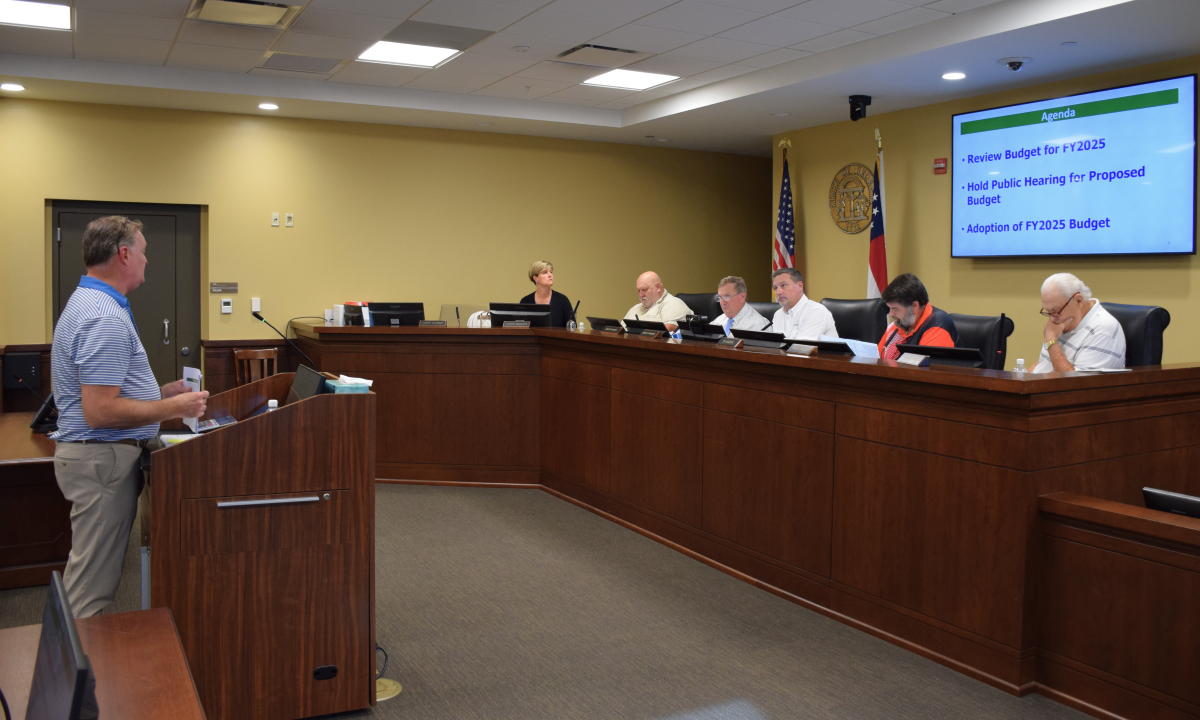
Hundreds of Georgia health care workers are urging Gov. Brian Kemp to require people to wear face masks in public.
Those workers are signing a letter, to be sent Thursday morning, that also calls on Kemp to shut bars and nightclubs and prohibit gatherings of more than 25 people, including at houses of worship.

The letter cites the sharp rise in new cases being reported daily in the state. “We are also seeing a very troubling increase in hospitalizations that, if continuing, will overwhelm our health care infrastructure, not only in metro Atlanta but also in rural Georgia,’’ the letter adds.
It had been signed by 1,150 people as of 5 p.m. Wednesday, Dr. Melanie Thompson, an Atlanta physician and HIV expert, told GHN in a Wednesday interview, “We have an epidemic that’s getting out of control in Georgia.’’
Thompson, principal investigator of the AIDS Research Consortium of Atlanta, cited areas outside metro Atlanta that are seeing alarming COVID-19 spikes, including LaGrange, Valdosta, Savannah and Chattahoochee County.
Kemp is launching a tour of Georgia cities to encourage people to wear masks. But he said Wednesday at a news conference that the mask issue is becoming “overpoliticized.’’
“We’re doing the best that we can in our state based on science and data,’’ Kemp said. “There’s a lot of people that don’t believe a mask mandate will work. I don’t think we’ll have to get to that point.’’
Savannah’s mayor this week required that masks be worn in public. Some states, including North Carolina, have mandated such face coverings in public, citing a rise in new infections.
Hospitalizations are up
Separately, Emory University experts said Wednesday that the system’s hospitals have seen almost a doubling of hospitalized COVID-19 patients over the past week. Across metro Atlanta, there has been a significant increase in hospitalizations, the Emory officials said.
“We’re at a very critical point in the epidemic,’’ said Dr. Carlos del Rio, a leading infectious disease expert at Emory University School of Medicine at Grady Health System.
 Cases are growing “at an exponential rate,’’ and not because of increased testing, he said. “It’s because of transmission.’’
Cases are growing “at an exponential rate,’’ and not because of increased testing, he said. “It’s because of transmission.’’
The upcoming Fourth of July holiday is a potential transmission problem, del Rio said, citing an increase in infections tied to Memorial Day. “It’s important to get the message out,’’ del Rio said. “I’m really concerned about this holiday, about what people do.’’
Several counties and cities in Georgia have canceled fireworks displays. Among those canceled are two of the largest such shows, at Atlanta’s Centennial Olympic Park and at Stone Mountain Park.
More young people hospitalized
According to Covid Exit Strategy, Georgia is seeing troubling coronavirus trends. New cases over a 14-day period are increasing by 125 percent, and the percentage of COVID-19 tests coming back positive is also increasing, currently at 13.3 percent, according to that website.

The state’s critical care bed capacity is at 75 percent. The number of hospitalized patients in Georgia have jumped from 700 in early June to more than 1,400 now.
The public health department covering Cobb and Douglas counties, meanwhile, issued a public health alert Wednesday warning of a “substantial rise” in confirmed cases of the novel coronavirus.
COVID-19-related 911 calls, emergency room visits, hospitalizations and need for ICU beds have all increased throughout the district, officials said.
The people being hospitalized now tend to be younger than the first wave of COVID-19 patients.
And there has been a big increase in Latino patients, Emory said.
Many of these people work in service, restaurant, manufacturing and poultry jobs, del Rio told reporters. He called it a “vulnerable population because of their employment.’’ Many live in poverty, and also tend to have higher rates of diabetes and hypertension, as do African-Americans, he said.

del Rio
Dr. Jonathan Lewin, CEO of Emory Healthcare, expressed concern Wednesday that if the COVID-19 cases continue to surge, hospitals could eventually be overwhelmed.
He said studies show that states and localities that require masks have better rates of mask use.
The higher the percentage of people wearing masks, the lower the transmission, Lewin said. “The closer we can get to universal masking, the better off we’ll be. The last thing I want to see is an increase in lockdowns.’’
Lewin said he can understand the governor’s hesitance in imposing a statewide mask order on areas that have very few cases. But in metro Atlanta and other hot spots such as LaGrange or Savannah, “I think local leaders may want to be more forceful in requiring masks,’’ he said.
He said Emory Healthcare has switched from strongly recommending masks for workers to requiring them, and has seen a dramatic decrease in employee infections.

Lewin
“Masks protect economic recovery,’’ Lewin said, and wearing them should not be considered “a political statement.’’
Hoping for an answer
Thompson, one of the authors of the letter to Kemp, said she appreciates seeing the governor wearing a mask in public and promoting the use of face coverings.
But she added, “It’s not the same thing as coming down on the side of science.’’
The letter concludes, “You acknowledged that you are dealing with political considerations, but we urge you to rise above the political to make the health and safety of our citizens your foremost concern. Successful control of the virus will be your biggest political victory.’’
 A spokeswoman for Gov. Kemp, Candice Broce, told GHN that she would not comment on a letter she had not yet seen.
A spokeswoman for Gov. Kemp, Candice Broce, told GHN that she would not comment on a letter she had not yet seen.
The increases in Georgia cases “are more clearly attributable to houses of worship, workplace settings, and social gatherings – as opposed to bars and nightclubs,’’ Broce said. “Right now, if you have more than 50 people in one location, you must have six feet between each person except for cohabitating persons and ‘transitory or incidental’ groupings of people.
“The governor’s most recent order containing that gatherings ban runs through July 15. The governor and Dr. [Kathleen] Toomey [Georgia’s Public Health commissioner] continue to strongly urge Georgians to heed public health advice, including washing their hands, socially distancing, and wearing a mask to mitigate the spread of COVID-19.’’
Thompson said health care workers previously wrote a letter to Kemp in April, urging him to shut down the state. Kemp and his administration officials did not reply to it, she said. Thompson said she hopes for a reply this time.
RELATED
Kemp: College football could be ‘tall task’ with COVID-19 cases growing







